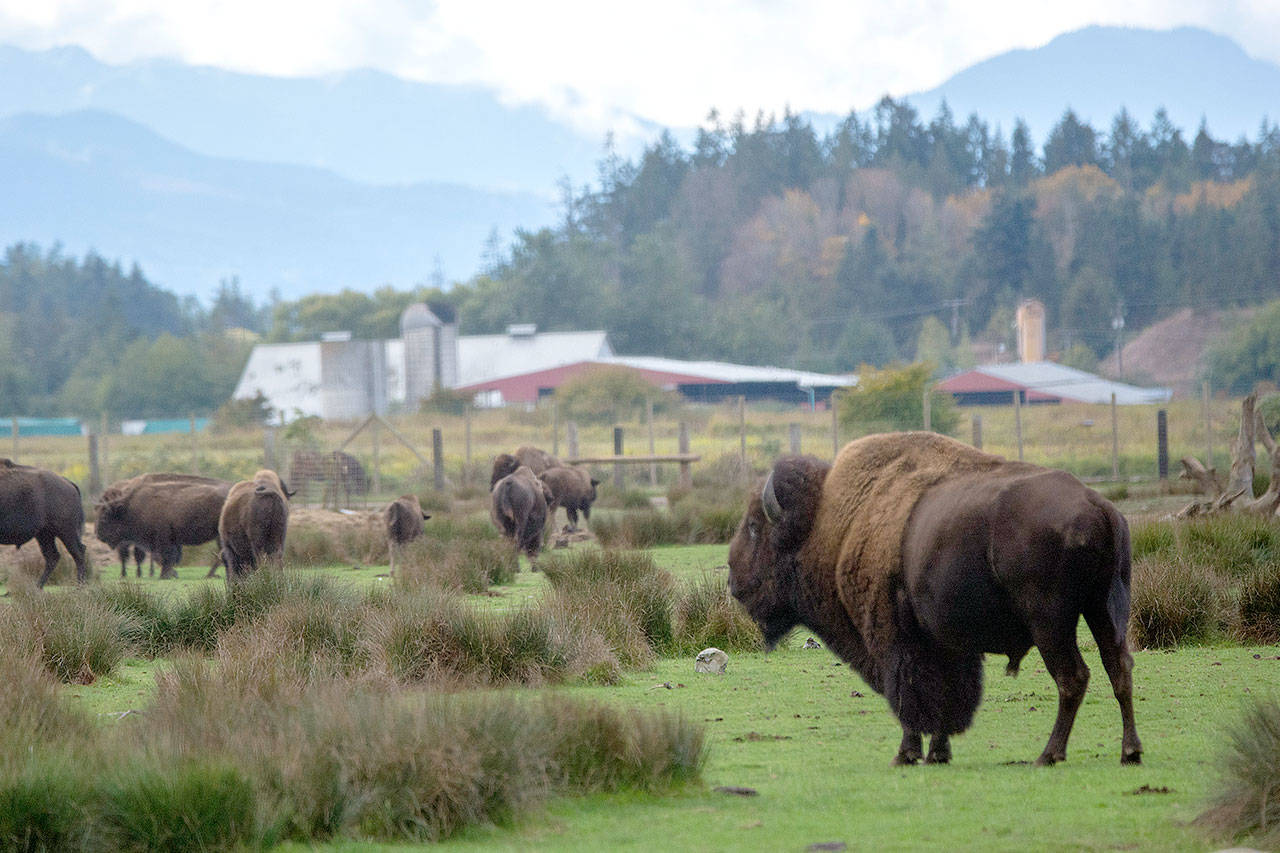By Jesse Major
Olympic Peninsula News Group
The Animal Legal Defense Fund is threatening to sue the Olympic Game Farm in Sequim, alleging the facility keeps animals — including lions, tigers, bears, gray wolves and Canada lynx — in substandard and cramped conditions in violation of the Endangered Species Act and state animal cruelty laws.
“The Endangered Species Act protects imperiled animals from inhumane conditions like those at Olympic Game Farm. Our lawsuit seeks to ensure those protections are enforced,” Stephen Wells, executive director of the national nonprofit, said in a prepared statement.
“We encourage the owners to work with the Animal Legal Defense Fund [ALDF] to rehome the animals to qualified sanctuaries equipped to provide them the care they deserve.”
Robert Beebe, president of the Olympic Game Farm at 1423 Ward Road, declined to comment, but provided a statement by The Cavalry Group, a firm dedicated to defending animal owners and animal-related businesses that are “under attack by those who seek to eliminate animal ownership and eliminate animal enterprise in America,” according to the firm’s website.
In the statement, The Cavalry Group defends the Olympic Game Farm against ALDF’s allegations.
The statement calls the accusations false and misleading and says ALDF “frequently uses emotionally charged, unscientific propaganda to destroy legal businesses which do not align with their ‘animal rights’ ideology.”
Tony Eliseuson, ALDF senior staff attorney, said the Endangered Species Act requires the firm to provide 60 days notice before filing a lawsuit.
In a letter dated Sept. 27, the California-based nonprofit tells the Olympic Game Farm it can avoid litigation by allowing the ALDF to facilitate the transfer of all animals at the Olympic Game Farm to “reputable sanctuaries” at no cost to the Olympic Game Farm.
Another option, according the letter, is for the Olympic Game Farm to close its doors to the public and become a Global Federation of Accredited Sanctuaries certified sanctuary.
“We’re hopeful the Olympic Game Farm takes up the offer in the letter, but we would anticipate filing the lawsuit pretty quickly after the 60-day mark,” Eliseuson said.
The letter says ALDF would file a lawsuit in the U.S. District Court seeking injunctive relief to ensure the transfer of every animal to sanctuaries that could “provide a more naturalistic setting for the animals to express species-typical behavior.”
According to the Cavalry Group, the Olympic Game Farm has no intention of responding to ALDF’s letter.
“Olympic Game Farm, Inc. is a legal business which meets and exceeds regular inspection standards, providing the best possible care and conditions for its animals,” the statement says.
“The Cavalry Group legal team is fully prepared to take whatever steps are necessary to protect our clients’ reputation and business.”
The Olympic Game Farm opened in 1972 with the intent of caring for animal actors and offer “in need” captive-bred animals a new home, according to its website.
Eliseuson said the Olympic Game Farm caught ALDF’s attention after the nonprofit received complaints about the treatment of animals there. He also referred to online reviews.
The majority of reviews on the Olympic Game Farm’s Facebook page appear to be positive, though some criticize its enclosures and treatment of animals.
Animals at the game farm include American bison, American black bear, Roosevelt elk, zebra, black-tailed prairie dog, llama, domestic yak, European fallow deer, Siberian tiger, Bengal tiger, African lion, mountain lion, bobcat, Canadian lynx, coyote, arctic fox, timber wolf, Kodiak bear, emu, Sika deer, spotted fallow deer, peacock, rabbit and raccoon.
“Olympic Game Farm, Inc. has a successful 40-year track record of stewardship and the highest standards of care offering access to a wide spectrum of animals to a public who otherwise would not have such access or wonderful experience,” The Cavalry Group’s statement says.
The Animal Legal Defense Fund said the Olympic Game Farm maintains hundreds of wild animals in inhumane and unsafe conditions.
Gray wolves, whose territories in the wild are between 200 and 500 square miles, live in small pens, the nonprofit says. Lions live in “barren, undersized cages without shelter from the cold,” according to the ALDF.
The ALDF claims visitors throw unlimited quantities of bread at brown bears. It claims that honking cars filled with children and dogs that participate in the driving tours only exacerbate the animals’ stress.
The ALDF specifically takes issue with how gray wolves, lions, tigers, brown bears and Canada lynx are treated. ALDF says in the letter that Olympic Game Farm’s practice of selling loaves of bread to visitors so they can feed the bread to animals is a concern.
“Along with providing an inappropriate food source, the Game Farm permits the public to drive through areas containing llamas, yaks, deer, zebras, elk and buffaloes,” the letter says.
“[United States Department of Agriculture] investigators reported these animals reaching their heads through the windows of moving vehicles to seek this bread, creating a hazardous situation for visitors and animals alike.”
Reporter Jesse Major can be reached at 360-452-2345, ext. 56250, or at jmajor@peninsuladailynews.com.



